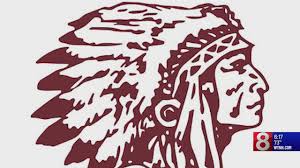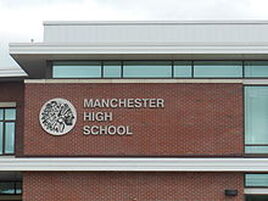Surveys cannot be used to settle civil rights issues. If they were, the Supreme Court would have ruled differently in Brown v. Board of Education because mainstream society in the 1950s would have responded overwhelmingly negatively in a survey probing about the need to integrate schools.
Examining the survey results shows enough contradictions that honest defenders of Native American mascots would not want to use the results to bolster their cause. While the survey said that most Native Americans were not offended by the mascots, the survey also found that similar percentages of Native Americans were annoyed or frustrated by mascots as were supportive of them. Moreover younger Native Americans were more likely to be opposed to mascots than older generations.
The fatal flaw with the survey is that respondents were self-identified as Native Americans instead of officially enrolled in tribes. Self-identification can include people who are not Native Americans so survey results can be tainted. The Native American Journalists Association demanded a retraction of all commentary and reporting associated with this survey. Further, Native American writer and advocate Rebecca Nagle points out that fake surveys find fake Native Americans and produce fake results. Another survey that verified that respondents were enrolled in tribes found that 67 percent of Native Americans were offended by mascots.
What is clear is that a significant number of Native Americans find mascots so offensive that they are outspoken in their determination to eradicate them. While survey results are befuddled and inaccurate, local actions across the country make clear that the wisest course is to eliminate racist vestiges of the past. Why persist in continuing with mascots that tribal representatives assert demean their culture and harm their well being? We need to dispense with surveys just as we need to dispense with Native American mascots.
Here is a roundup of high schools changing their names this summer. Native American tribes were quite involved and not ambivalent as survey results would suggest.
Idaho
The school board that oversees Teton High School, near the Wyoming-Iowa border, voted this July to retire the name of the high school, R-skins. Ironically, a rural community near Iowa has the moral courage to drop a racial slur mascot while the supposedly urbane professional football team in Washington DC marches on with a racist mascot, name, and logo.
The change was not easy. In a survey, most students of the high school opposed the change. A Facebook group with 1,000 users formed to defend the name as respecting and honoring Native Americans. An equally determined group of writers for the student newspaper declared that they were dispensing with the use of Native American names. Almost 200 people showed up at a board meeting to voice their opinions of the name.
The board voted 4-1 to scrap the name. However, the complete change will take time as the board also decided that no taxpayer money will be used remove Native American signage on school property. The board will engage the community in a process to find a new name.
The change has been occurring over a number of years. The school no longer used a physical mascot dressed up as a Native American and the logo on uniforms no longer contained a head of a Native American.
Two local Native American tribes, the Shoshone-Bannock and Nez Percé, had been outspoken about the need for a change. In a position paper, the Shoshone-Bannock tribe says that “the continued use of the name would only honor the non-Indian ideology created by dominant mainstream society, whose ancestors killed, sold, removed the original Indian residents. We do not have a name for r-dskin in our language. The origin of the name r-dskin refers to the name colonists made up. These names clearly delineated Indian people as a separate race of people who had no civil rights under the U.S. Constitution or the Bill of Rights.”
Seems like enough people in the Teton High School district understood that Native American logos and dances used by schools, colleges, and professional teams are inaccurate descriptions of Native American rituals, costumes, and religions. Native American mascots and names are cultural appropriation used by the dominant culture to exploit, stereotype, and discriminate.
The Boise High School District will also delete a Native America name and imagery, dropping “Braves” in favor of “Brave.” District spokesperson Dan Hollar stated, "So it's no longer associated with a Native American imagery. Rather than a caricature, the mascot is a character trait." The school had been called the “Braves” since the 1920s.
Massachusetts
The state legislature is considering a bill that would ban the use of Native American logos and names in public schools. About three dozen schools in the state use Native American names and logos.
In Braintee, public schools use the names “Wamps” which is short hand for the tribal name Wampatuk. Tribal representatives do not regard a nickname as honoring their tribe or traditions.
Not all school officials are on board with banning Native American mascots. Brian Lynch, who leads the Middleborough school district said “Middleboro has always treated the Sachem name with honor and respect.” Sachem is derived from an Algonquin word that means “chief.” Hopefully, the process of education and dialogue will lead to a softening of the opposition and the dropping of Native American mascots.
Connecticut
A push by students led to the retirement of “Indians” in favor of “Redhawks” at the Manchester school district. In 2018, the students conducted a survey which found that most students in the high school favored a name change.
“We’re proud of the students for all their work,” Superintendent Matthew Geary said. “The kids did the research, they presented a thoughtful, cohesive argument to the Board of Education. Our community is evolving. The school system is committed to working on equity, the town is working on equity, so in a lot of ways this is a long time coming.”
Similarly, Killingly High School Redmen symbols will be retired. The school district consulted the Nipmuc Tribal Council, which said that the name was not appropriate. In a letter, the Chairman of the tribe, Kenneth Gould Sr., maintained, “Native American mascots, often portrayed as caricatures or cartoons, are demeaning to Native Americans and it is our opinion that they should not be used. We do not feel it is appropriate for our culture to be appropriated in this way, or that we should be represented in this way.”
Progress still needs to be made. About 20 other Connecticut high schools still use Native American names and logos.


 RSS Feed
RSS Feed